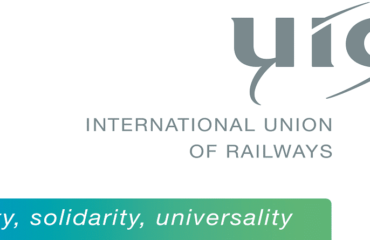
A draft 30-year Strategic Transport Plan for northern England was published by Transport for the North (TfN), marking the start of a 13-week consultation on the proposals, which include the first detailed vision for the Northern Powerhouse Rail (NPR) link between the region’s six largest cities.
The plan aims to tackle the economic imbalance between northern and southern England through a range of measures, which could deliver a £100bn economic boost and 850,000 new jobs by 2050.
According to the strategy, total demand for rail travel in the region is expected to rise from 178 million journeys a year to around 760 million trips by 2050. A broad range of measures is therefore proposed to increase capacity and reduce journey times.
TfN identifies seven “corridors of opportunity” across the north, development of which is considered essential to achieve the core aims of the plan – improving access to jobs, making travel easier, supporting businesses, and improving the movement of freight across the region.
Alongside the corridors proposals, TfN outlines its emerging vision for NPR, as a “rapid, reliable, and resilient” rail network connecting Liverpool, Manchester, Leeds, Sheffield, Hull and Newcastle with a combination of new and upgraded infrastructure. NPR would bring more than 1.3 million people within an hour of four or more major northern cities, compared with less than 10,000 people today.
NPR will include:
• a new line linking Liverpool and Warrington with the High Speed 2 (HS2) Manchester Spur
• capacity at Manchester Piccadilly for around eight through services per hour
• a new Trans-Pennine line that connecting Manchester and Leeds via Bradford
• significant upgrades along the corridor of the existing Hope Valley Line from Sheffield to Manchester via Stockport
• Leeds – Sheffield delivered through HS2 Phase 2B and upgrading the route from Sheffield
• Leeds – Newcastle via the HS2 junction and upgrades to the East Coast Main Line, and
• significant upgrading of the existing Leeds – Selby – Hull and Sheffield – Doncaster – Hull lines.
NPR could reduce the Liverpool Lime Street – Manchester Piccadilly journey time from around 50 minutes to 28 minutes, while Sheffield – Leeds could be cut from 41 minutes to 26 minutes. Manchester – Leeds journey times would be “no more than 30 minutes” including a stop at Bradford, compared with 49 minutes for the fastest services today.
TfN says further work is underway to develop options and a business case for a new line or significant upgrades between Manchester and Sheffield, and to refine options for the overall network.
TfN and the Department for Transport (DfT) will complete a strategic outline business case for NPR by the end of this year, which would enable design work to begin on each corridor.
Long-term rail strategy
Alongside the Strategic Transport Plan, TfN is publishing an updated Long-Term Rail Strategy for the North, which outlines priorities for investment in new infrastructure and upgrades of existing lines, as well as harnessing new technologies.
The strategy will develop around five key themes:
• Connectivity: delivering a step change in connectivity including frequency and journey time improvements, combined with better integration of services
• Capacity: providing longer trains and additional services to meet existing and future passenger demand, with improvements to the infrastructure and signalling capability to accommodate more trains
• Customer: developing a passenger network that is easy to navigate, accessible and predictable, with consistent information available before and throughout journeys
• Community: supporting the social fabric of the communities served by the railway and providing access to employment, training, education and leisure activities, and
• Cost-effectiveness: growing revenue and minimising the unit cost of operating and maintaining the North’s railway without compromising the quality of the services offered.
In the short term, TfN says it is looking to secure the benefits of current infrastructure enhancements, including full delivery of Northern and TransPennine Express franchise commitments. In the medium- and longer-term, it calls on infrastructure manager Network Rail to complete delivery of the committed enhancement programme and the Great North Rail Project (including the Trans-Pennine Route Upgrade), prepare the conventional network for the arrival of HS2, and identify and develop interventions that will be needed in the future.
With the Northern and TransPennine franchises making significant investment in new trains, TfN is eager to ensure the benefits of these enhancements are fully realised with infrastructure that enables the latest trains to perform to their full capability.
TfN argues that unless infrastructure improvements are delivered, journey times between key centres will remain uncompetitive with other modes. “Without sustained investment, constraints that remain on the network will force potential trade-offs between connectivity, capacity and punctuality,” it states. “These bottlenecks must not erode benefits and prevent growth and modal shift by compromising performance, or preclude the introduction of new or optimised passenger and freight services.”
In addition to ensuring the completion of committed enhancements, TfN is developing an initial long-term Investment Programme, which will ultimately develop into a pipeline of projects which will deliver the outputs of the Strategic Transport Plan and the rail strategy over the next 30 years. TfN will then seek the funding required to deliver these enhancements.

Post from http://www.railjournal.com
According to the strategy, total demand for rail travel in the region is expected to rise from 178 million journeys a year to around 760 million trips by 2050. A broad range of measures is therefore proposed to increase capacity and reduce journey times.
TfN identifies seven “corridors of opportunity” across the north, development of which is considered essential to achieve the core aims of the plan – improving access to jobs, making travel easier, supporting businesses, and improving the movement of freight across the region.
Alongside the corridors proposals, TfN outlines its emerging vision for NPR, as a “rapid, reliable, and resilient” rail network connecting Liverpool, Manchester, Leeds, Sheffield, Hull and Newcastle with a combination of new and upgraded infrastructure. NPR would bring more than 1.3 million people within an hour of four or more major northern cities, compared with less than 10,000 people today.
NPR will include:
• a new line linking Liverpool and Warrington with the High Speed 2 (HS2) Manchester Spur
• capacity at Manchester Piccadilly for around eight through services per hour
• a new Trans-Pennine line that connecting Manchester and Leeds via Bradford
• significant upgrades along the corridor of the existing Hope Valley Line from Sheffield to Manchester via Stockport
• Leeds – Sheffield delivered through HS2 Phase 2B and upgrading the route from Sheffield
• Leeds – Newcastle via the HS2 junction and upgrades to the East Coast Main Line, and
• significant upgrading of the existing Leeds – Selby – Hull and Sheffield – Doncaster – Hull lines.
NPR could reduce the Liverpool Lime Street – Manchester Piccadilly journey time from around 50 minutes to 28 minutes, while Sheffield – Leeds could be cut from 41 minutes to 26 minutes. Manchester – Leeds journey times would be “no more than 30 minutes” including a stop at Bradford, compared with 49 minutes for the fastest services today.
TfN says further work is underway to develop options and a business case for a new line or significant upgrades between Manchester and Sheffield, and to refine options for the overall network.
TfN and the Department for Transport (DfT) will complete a strategic outline business case for NPR by the end of this year, which would enable design work to begin on each corridor.
Long-term rail strategy
Alongside the Strategic Transport Plan, TfN is publishing an updated Long-Term Rail Strategy for the North, which outlines priorities for investment in new infrastructure and upgrades of existing lines, as well as harnessing new technologies.
The strategy will develop around five key themes:
• Connectivity: delivering a step change in connectivity including frequency and journey time improvements, combined with better integration of services
• Capacity: providing longer trains and additional services to meet existing and future passenger demand, with improvements to the infrastructure and signalling capability to accommodate more trains
• Customer: developing a passenger network that is easy to navigate, accessible and predictable, with consistent information available before and throughout journeys
• Community: supporting the social fabric of the communities served by the railway and providing access to employment, training, education and leisure activities, and
• Cost-effectiveness: growing revenue and minimising the unit cost of operating and maintaining the North’s railway without compromising the quality of the services offered.
In the short term, TfN says it is looking to secure the benefits of current infrastructure enhancements, including full delivery of Northern and TransPennine Express franchise commitments. In the medium- and longer-term, it calls on infrastructure manager Network Rail to complete delivery of the committed enhancement programme and the Great North Rail Project (including the Trans-Pennine Route Upgrade), prepare the conventional network for the arrival of HS2, and identify and develop interventions that will be needed in the future.
With the Northern and TransPennine franchises making significant investment in new trains, TfN is eager to ensure the benefits of these enhancements are fully realised with infrastructure that enables the latest trains to perform to their full capability.
TfN argues that unless infrastructure improvements are delivered, journey times between key centres will remain uncompetitive with other modes. “Without sustained investment, constraints that remain on the network will force potential trade-offs between connectivity, capacity and punctuality,” it states. “These bottlenecks must not erode benefits and prevent growth and modal shift by compromising performance, or preclude the introduction of new or optimised passenger and freight services.”
In addition to ensuring the completion of committed enhancements, TfN is developing an initial long-term Investment Programme, which will ultimately develop into a pipeline of projects which will deliver the outputs of the Strategic Transport Plan and the rail strategy over the next 30 years. TfN will then seek the funding required to deliver these enhancements.

Post from http://www.railjournal.com



